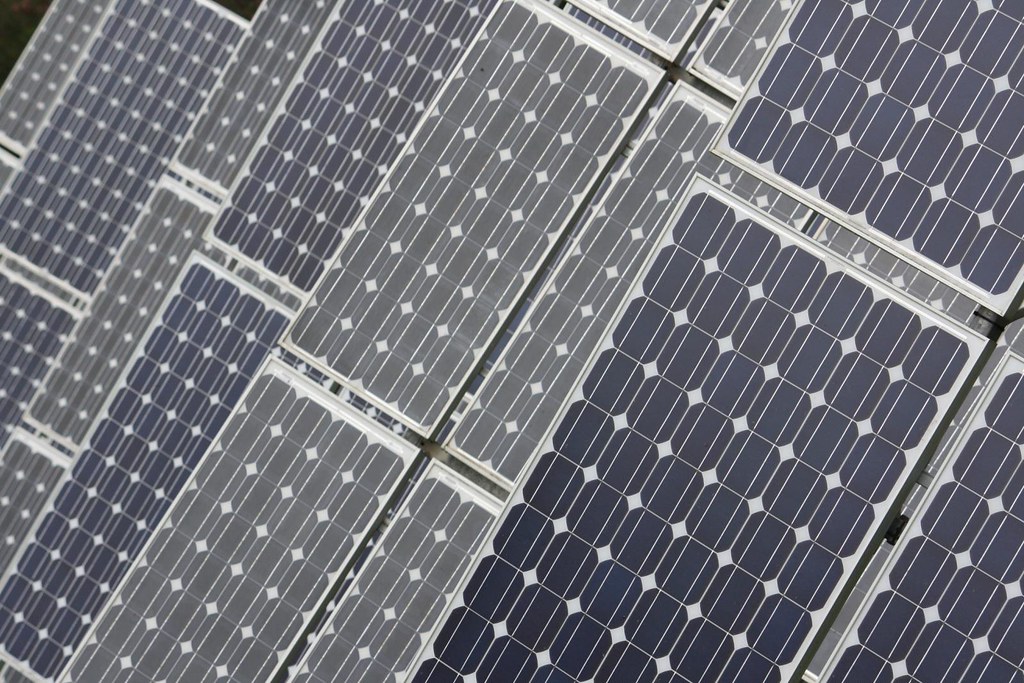By: Poppy Doolan

“Solar cells” by Mountain/\Ash is licensed with CC BY 2.0. To view a copy of this license, visit https://creativecommons.org/licenses/by/2.0/
The domestic silicon metal industry has long been at a disadvantage from foreign producers exporting to the United States.[1] The U.S. Department of Commerce (“Commerce”) has determined this will change – but the extent will likely be determined by the Court of International Trade.[2] The Court’s decision may determine the future for U.S. production of silicon metal, a product used to manufacture essential products like steel, microchips, and solar cells.[3]
In July 2020 domestic silicon metal producers Globe Specialty Metals, Inc. and Mississippi Silicon LLC petitioned Commerce and the International Trade Commission (“ITC”) to investigate allegations of the unfair subsidization and dumping of silicon metal imports from Bosnia and Herzegovina, Iceland, and Malaysia.[4] In June 2021, Commerce and the ITC affirmed that the foreign-produced silicon metal was being sold in the United States at less than fair value, or dumped, and therefore would be remedied by the imposition of a tariff equal to the dumping margin on the imported product.[5] Although Commerce and the ITC found in favor of the U.S. producers, the U.S. producers challenged the determinations in part and filed a complaint at the U.S. Court of International Trade.[6] The companies allege that the tariff of 21.41 percent ad valorem imposed on imports from Bosnia and Herzegovina was insufficient to remedy the dumping because it was based off Commerce’s incorrect calculation of the dumping margin.[7]
Commerce calculates the dumping margin by measuring the difference between the imported product’s price in the United States and the product’s “normal price”—either the company’s sales price in its domestic market, it’s constructed price based on production costs in that market, or if those costs can’t be determined, a value based on third-country production costs.[8] In determining the dumping margin in this investigation, Commerce selected Bosnian producer R-S Silicon as the mandatory respondent to fill out the questionnaire to acquire the relevant data to calculate the product’s normal price, but the respondent did not comply.[9] Therefore, Commerce assigned the dumping margin based on the total adverse facts available to the respondent, or “total AFA”.[10] Additionally, to construct the “normal value” of the imported product, Commerce used data from Globe Specialty Metals, Inc.’s parent company, Ferroglobe.[11]
The petitioners argue that based on the AFA analysis used, Commerce should have followed standard practice and adopted the highest dumping rate alleged by petitioners, which was 39%. The petitioners additionally allege that data from a third country company, Ferroglobe, should not have been utilized, because using third country data can only be utilized as a method of last resort, and Ferroglobe supplies not only silicon metal but a broad array of steel and metal products, allegedly skewing the value data in favor of the foreign producers.[12]
While the petitioners are correct that Commerce did not follow its primary method of determining the dumping margin in this case, it is unlikely the Court of International Trade will find that Commerce acted unlawfully or beyond its purview in determining the dumping margin. Section 776(b)(2)(A) of the Tariff Act states that Commerce may rely on the data in the original petition, but the statute does not require reliance on the data presented in the petition and instead requires Commerce to conduct its own research to verify the alleged dumping margin, which it did in this case.[13] While it is Commerce’s standard practice of primarily using data from exporters in the foreign market being analyzed, when that information is unavailable, Commerce can use the information it deems comparable, as it demonstrated in this case. Domestic silicon producers should not get too excited—it is unlikely that the Court will find that Commerce acted unlawfully, or outside of its purview as defined in the Tariff Act. The 21.41% tariff on imported silicon metal from Bosnia is probably here to stay.
[1] U.S. Silicon Producers Push for Higher Duties on Bosnian Imports, Bloomberg Law (June 2021), https://news.bloomberglaw.com/international-trade/u-s-silicon-producers-push-for-higher-duties-on-bosnian-imports?utm_source=rss&utm_medium=ITNW&utm_campaign=00000179-eba9-da66-a1fb-fbeff3b20001.
[2] Id.
[3] Terence Bell, The Properties and Uses of Silicon Metal, ThoughtCo (Aug. 2019), https://www.thoughtco.com/metal-profile-silicon-4019412.
[4] Press Release, Int’l Trade Admin., Dep’t of Com., U.S. Department of Commerce Initiates Antidimping Investigations of Silicon Metal From Bosnia and Herezegovina, Iceland, and Malaysia, and a Countervailing Duty Investigation of Imports From Kazakhstan (July 21, 2020), https://www.trade.gov/press-release/us-department-commerce-initiates-antidumping-duty-investigations-silicon-metal-bosnia.
[5] Int’l Trade Admin., Antidumping and Countervailing Duty handbook: Fourteenth Addition (2021), https://www.usitc.gov/trade_remedy/documents/handbook.pdf.
[6] Compl., Globe Specialty Metals, Inc. v. United States, No. 21-00231(Ct. Int’l Trade 2021).
[7] Id.
[8] Antidumping Margin Calculation Programs, Int’l Trade Admin. (Apr. 2021), https://access.trade.gov/resources/sas/programs/amcp.html.
[9] Compl., Globe Specialty Metals, Inc. v. United States, No. 21-00231 (Ct. Int’l Trade 2021).
[10] Id.
[11] Id.
[12] Id.
[13] U.S. Dep’t of Com., Issues and Decision Memorandum for the Final Affirmative Determination in the Less-Than-Fair-Value Investigation of Silicon Metal from Bosnia and Herzegovina (Feb. 22, 2021), https://enforcement.trade.gov/frn/summary/multiple/2021-04003-1.pdf.


